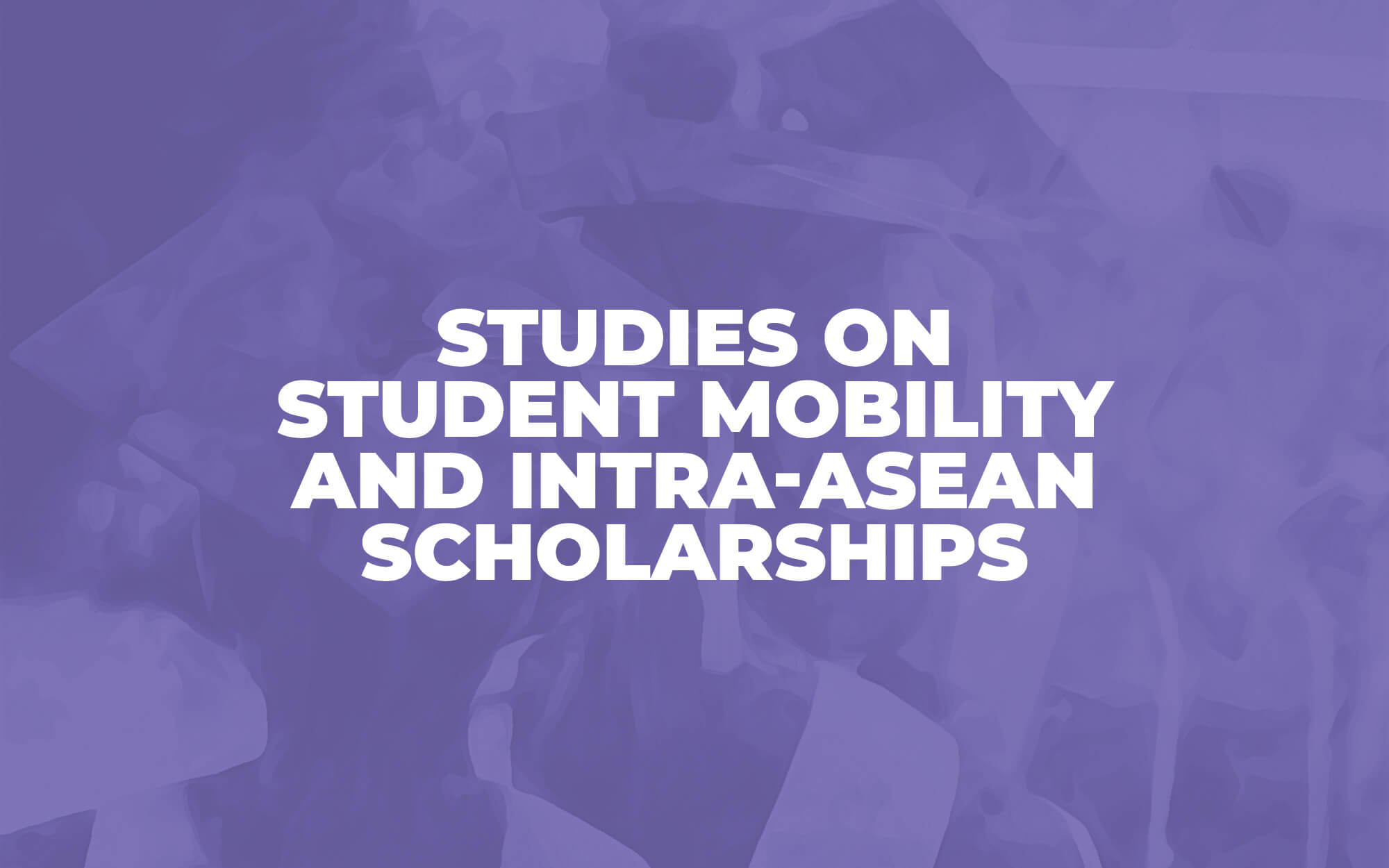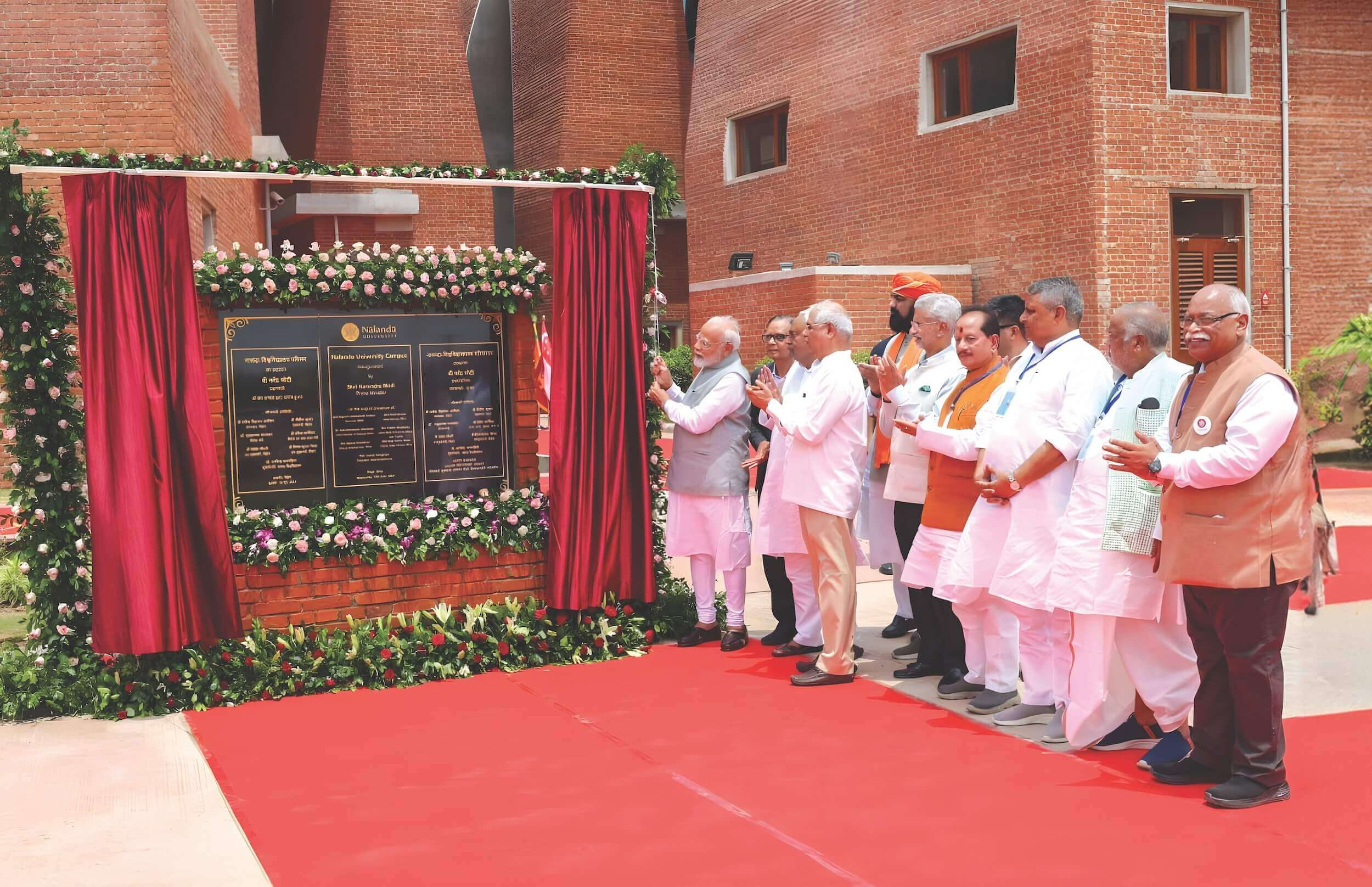




Human resources development places high on the national priorities of all ASEAN Member States; and it continues to be a vital aspiration of the ASEAN Community. The ASEAN Charter includes in its main purposes: the development of human resources, promotion of sustainable development, and enhancement of regional resilience.
The quality of human resources is a key component of the Charter’s objectives. Through knowledge, capacity, and skills development, productivity can be improved; and a country’s economic competitiveness can be enhanced. Investing in education and skills development therefore plays a crucial role as ASEAN nations move up the value chains and work towards knowledge-based economies.
But the world of work is swiftly changing due to technological advances, demographic transitions, and greening of economies, and now the impact of the COVID-19 pandemic.
Technology and the Future of Work
Rapid technological advancement has stimulated new business models and influenced labour markets like never before. The disruptive changes brought about by digitalisation and automation are transforming the nature of work and required labour skills. On the one hand, technological transformations can create new jobs, lower production costs, increase efficiency and productivity, and accelerate economic growth. On the other, these disruptions are projected to change value-chain structures, render current occupations obsolete, and relegate certain jobs to automation.
According to the International Labour Organization (ILO), the emerging characteristics of future labour markets are more fluid, unforeseeable, less secure, and technology-driven. The range of tasks that can be handled by technology will expand. There will be greater expectation that human resources have up-to-date skills to work with advanced technologies. Human resources development policies and programmes should therefore respond to these opportunities and challenges.
Investment in human resources development is necessary to make workers more versatile and adaptable and keep economies growing. The projected impact of the fourth industrial revolution or 4IR can be mitigated by preparing ASEAN labour markets. Educational systems that not only promote cognitive and behavioural development, but also nurture creative skills should be supported. Reskilling and upskilling of workers should be pursued as they can boost productivity and competitiveness of firms. With the right skills, individuals have better chances of engaging in meaningful work and earning higher salaries.
Human Resources Development in ASEAN
With the rising demand for workers with future- ready skills and changing employment relations, ASEAN Member States have put in place strategies to maximise the opportunities presented by this technological transformation as well as cushion its adverse impact. ASEAN Member States vowed to cooperate in the preparation of the region’s workforce for the future of work and development of its human resources.
This commitment, embodied in the ASEAN Labour Ministers’ Statement on the Future of Work: Embracing Technology for Inclusive and Sustainable Growth issued in April 2019, demonstrates the ministers’ resolve to embrace technology in preparing the ASEAN work force for the future and promoting decent work.
The ministers agreed to build the capability of government and private sector to produce a future-ready workforce, and work with tripartite partners and other stakeholders in supporting enterprises and workers. They also pledged to encourage businesses to invest in decent work and apply technology that improves the quantity and quality of current and emerging jobs.
The ministers agreed to support fiscally sustainable social protection initiatives for workers, and encourage participation of vulnerable populations in science, technology, engineering, mathematics, and related careers. Finally, they pledged to share information on responsive policies, best practices, and experiences of their countries as well as learn from other partners outside ASEAN in preparing workers to adapt to future jobs.
Under the ASEAN Chairmanship of Viet Nam this year, governments, tripartite partners, the academia, and business sector jointly crafted the ASEAN Declaration on Human Resources Development for the Changing World of Work. The declaration was finalised by the ASEAN Education and Labour Ministers, and adopted by the 36th ASEAN Summit in June 2020.
The declaration commits ASEAN Member States to cultivate a lifelong learning culture and raise awareness among the youth, workers, and employers on the importance of investing in education, training, and skills development initiatives to adapt to the changing world of work.
Member States agreed to promote demand-driven competencies and qualifications in technical and vocational education and training (TVET) and higher education, improve accessibility and quality of labour market information, and promote infrastructure development so that opportunities brought by 4IR could be widely enjoyed.
The declaration also aims to improve the inclusivity of education and employment for all, coherence of human resources development policies, as well as responsiveness and cohesiveness of labour, educational, economic policies and institutional frameworks. Leadership of business, industry, and educational institutions on human resources development is acknowledged and supported by fostering closer partnerships between the government and private sector, and providing incentives.
The establishment of a central pool of funds will be explored, with contributions from governments, private sector, international organisations, and other partners to support priorities and research on future skills needs. A roadmap of strategies and actions to implement commitments in the declaration will be developed in the latter part of this year.
The declaration also formalises the establishment of the ASEAN TVET Council, a multi-sectoral and multi-stakeholder platform for coordination, research and development on innovations, and monitoring of regional programmes that support the advancement of TVET in the region.
The COVID-19 Disruption
ASEAN has also set initiatives to build the resilience and adaptability of the region’s labour force in times of crises. The COVID-19 pandemic’s profound impact has gone beyond public health. Its economic impact is significant and broad-based, disrupting supply chains and financial markets. Restrictions on mobility and demand side-shocks have slowed down the normal course of production, trade, and distribution. Livelihoods of people around the world have been adversely affected.
The ASEAN region has not been spared. Millions of workers are affected by temporary workplace closures that have led to a decline in earnings, furloughs, or outright layoffs. Many of them are low wage workers whose livelihoods are at risk. The ASEAN Policy Brief, published in April, states that informal economy workers, gig workers, and daily-wage earners in industries like travel, tourism, and retail are the hardest hit groups in
the region. Furloughed and laid off migrant workers also face an uncertain future and may have to be reintegrated into the mainstream economy.
According to the United Nations Educational, Scientific and Culture Organization (UNESCO), closures of schools and universities are affecting over 60 per cent of the world’s student population. Distance learning has been implemented by educational institutions around the world to ensure learning continuity, but many school systems, teachers, and infrastructure are generally unprepared for online education.
To more thoroughly understand the repercussions of the pandemic on labour, education, and vulnerable groups in ASEAN, the Asia Foundation and the ASEAN Secretariat’s ASEAN Socio-Cultural Community Department have embarked on a study entitled “Rapid Assessment for ASEAN: Impacts of the COVID-19 Pandemic on the Livelihoods of ASEAN Populations.”
This evidence-based study is expected to inform the national responses of Member States as well as help relevant ASEAN sectoral bodies and the ASEAN Secretariat identify immediate and longer-term actions needed at the regional level.
ASEAN ministerial sectoral bodies on health, economy, foreign affairs, labour, tourism, agriculture, and defense have convened their special meetings virtually to deliberate on regional cooperation. The 2020 ASEAN Chairmanship’s theme of building a cohesive and responsive ASEAN is especially apt given the current circumstances.
The Declaration of the Special ASEAN Summit on COVID-19 held on 14 April 2020 reaffirmed ASEAN’s commitment to take collective action and coordinate policies in the fight against the pandemic. In the declaration, our leaders agreed to, among others, keep markets open; provide targeted support to assist people and businesses especially the micro, small and medium enterprises; ensure social safety net for our people; and encourage the development of a post-pandemic recovery plan.
The ASEAN labour ministers also held a special meeting virtually on 14 May 2020 to discuss the regional response to the impact of COVID-19 on workers. One of their commitments is to strengthen the effectiveness of active labour market policies at national and regional levels, occupational safety and health standards, and social protection systems so that workers retain their jobs and are more resilient, and those at-risk are less vulnerable.
The worldwide temporary restrictions of movement and business closures due to the COVID-19 pandemic are unprecedented. The crisis, however, provided an opportunity for governments, employers, workers, educational institutions, teachers, learners, and other stakeholders to draw lessons from the current challenges and be better prepared for the changing world of work.








